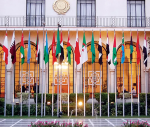You are here
When will we wake up? A call for a brighter future
Mar 07,2019 - Last updated at Mar 07,2019
I was switching between different radio channels few days ago on my way to work when I stopped at a fortune-telling show. The show caught my attention instantaneously. A lady was desperately asking the guest speaker, who was an astrologist, about the health of her sister and whether the second will get married within the next couple of years. This was followed by a call from another lady asking similar questions followed by a gentleman and another, all asking questions concerning their health, future, wealth and success. This is when I decided to write this article and expose this phenomenon that seemed prevalent to me within our society, based on the number of people who interacted with the show from both genders and, apparently, from different age groups.
The question that immediately popped into my head was that: Why have we reached this level of intellectual regression and social decline in terms of our beliefs and reliance on segmented facts and myths to run and control our lives? No two disagree that astrology, the shapes of constellations in the night sky and the Zodiac have been influential throughout history and were part of the culture and traditions of almost all civilizations, old and new. Yet, their influence varied from one nation to another. But are we so different than the other nations in terms of the level of influence of astrology on our lives?
On a personal basis, I enjoy observing the stunning Orion constellation in the night sky during winter. Gazing at Orion gives me this feeling of wondering, excitement and even unexplained security. Orion is not the only constellation I enjoy staring at since we live in Jordan, which is located in the northern hemisphere of our planet where the Big Dipper, Scorpio and Libra, my own Zodiac sign, are also part of the group of constellations observable from the northern hemisphere.
Several scientific facts about the structure of the universe are still not yet proved, but that does not necessarily mean humans on Earth are destined to behave in specific ways according to undefined interstellar or intergalactic entities or superpowers. Scientifically, and according to numerous astrophysicists and experts in the field, the cosmos does not determine an individual’s life or fortune and the signs of the Zodiac, constellations of stars, represent only imaginary pictures drawn mainly in the minds of those people who named them in the past. In addition, the entire universe is in a continuous course of expansion, drawing everything apart, including galaxies, stars and planets, which subsequently reduces the chances of an influence of these objects on one another. Stars in constellations are tremendously far from each other, measured in light years, making them less connected. This also applies to our solar system, in which no supernatural or alien controls are proved to exist, except for the gravitational forces and solar activity.
As a risk management and strategic planning specialist, I believe that if this phenomenon continues to influence wider segments of our society, it will have further significant implications. One of the basic principles in strategic planning is to try to improve future based on present capabilities, competences and resources, not by relying on fragmented and erratic future “prophesies” to change or improve present conditions.
On the other hand, particular patterns of social behaviours can sometimes be explained. Poverty, tough economic conditions and unemployment are all factors that drive people impotent and to adopt different belief systems in order to sustain even the lowest standards of living. In Jordan, various factors contributed to the decline of the present socioeconomic system that used to be more integrated and stable in the past, including mainly the sudden increase of population, the multiple refugee crises and political conflicts.
Supposedly, if I am exaggerating in my assessment of the impact of this phenomenon on our society, should not we, at least, start investigating the issue more thoroughly using the available methods of scientific research? Should not we ask people why they continue relying not only on astrology in specific, but also on many other forms of fortune telling, seeking answers for the purpose of their lives and for their living conditions? Should we not start identifying the most vulnerable groups of people who are most affected by this practice? These are some of the questions I wanted to address in this regard, and which I hope they can be investigated in more detail the nearest future.
The writer is an associate professor of risk management at the Risk Management Department at the American University of Madaba. He contributed this article to The Jordan Times












